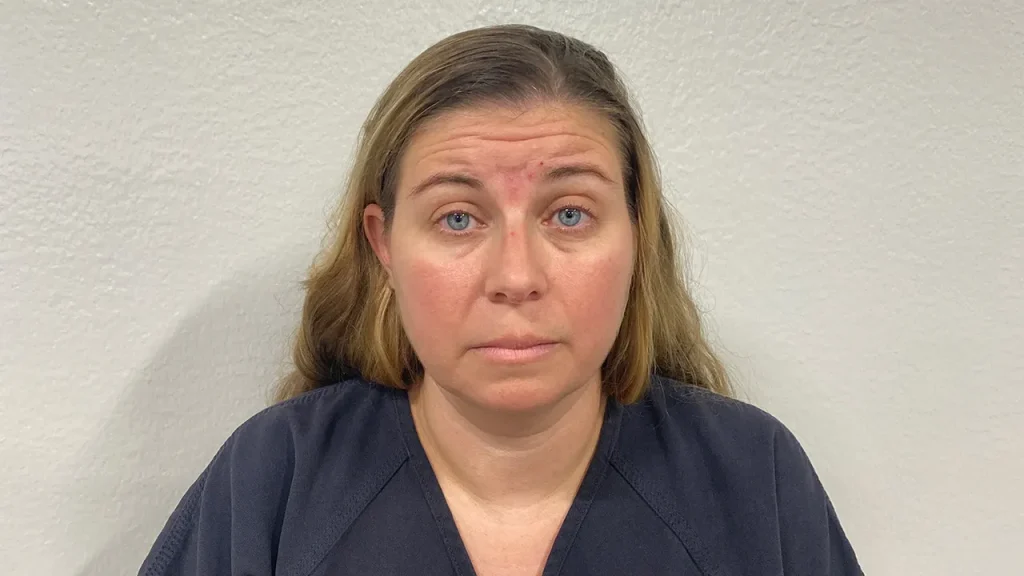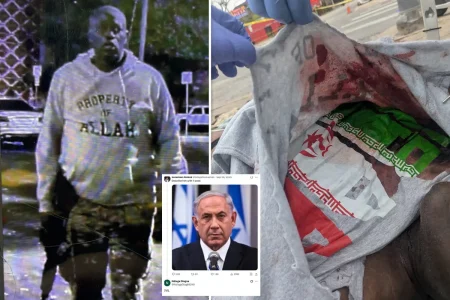The arrest of Briana Boston in Polk County, Florida, highlights the growing tension and frustration surrounding healthcare insurance claims and denials, amplified by the recent murder of UnitedHealthcare CEO Brian Thompson. Boston, 42, faces charges of making threats to conduct a mass shooting or an act of terrorism after allegedly threatening a Blue Cross Blue Shield agent during a phone call regarding a denied claim. The chilling echo of the Thompson murder resonates in this case, with Boston allegedly using the phrase “Delay, deny, depose. You people are next,” a disturbing reference to the shell casings found at Thompson’s murder scene bearing the same words. This incident reveals a troubling trend of escalating anger directed at insurance companies and their employees, raising concerns about the potential for further violence.
Boston’s arrest followed a phone call to a Blue Cross Blue Shield agent, during which she expressed her discontent over recent claim denials. Authorities were alerted to the threatening nature of the call, prompting a visit to Boston’s residence by Lakeland Police Department officers. Upon questioning, Boston reportedly admitted to making the threat and offered an apology. While asserting that she does not own firearms and poses no danger, Boston’s words nonetheless triggered a serious legal response given the heightened sensitivity surrounding threats against insurance companies in the wake of Thompson’s murder. The arrest affidavit further revealed Boston’s belief that healthcare companies “deserved karma from the world because they are evil” and engage in manipulative practices, underscoring the deep-seated resentment fueling her actions.
The backdrop of this incident is the murder of Brian Thompson, the CEO of UnitedHealthcare, who was found dead in New York City on December 4th. Luigi Mangione, a 26-year-old Ivy League graduate, was subsequently arrested in connection with the murder. The discovery of shell casings at the scene inscribed with “delay,” “deny,” and “depose” added a chilling dimension to the case, suggesting a possible motive rooted in resentment towards the insurance industry. The Thompson murder ignited a wave of mixed reactions on social media, with some individuals expressing support for Mangione’s actions while others condemned the violence. The incident has undoubtedly cast a long shadow over the insurance industry and fueled fears of copycat attacks.
The repercussions of Thompson’s murder extend beyond the immediate investigation. UnitedHealthcare responded by removing the photos and names of its executives from its website, a precautionary measure aimed at protecting its employees from potential threats. This move reflects a growing concern about the safety of insurance executives and staff in the face of escalating animosity. Several other insurance companies, including some Blue Cross Blue Shield plans, as well as pharmacies, have followed suit, removing executive information from their websites in an attempt to mitigate the risk of copycat violence. This widespread reaction underscores the industry’s growing concern about the potential for further attacks and the need to protect its employees.
The Boston case and the Thompson murder highlight a complex interplay of factors contributing to the rising tensions surrounding healthcare insurance. The often frustrating and opaque nature of the claims process, coupled with the high cost of healthcare, can lead to significant financial and emotional strain for individuals seeking coverage. Denials of claims can exacerbate these feelings, potentially leading to anger and resentment directed at insurance companies and their representatives. While violence is never the answer, these incidents underscore the need for greater transparency and accountability within the healthcare insurance industry. Improving communication and providing clearer explanations for claim denials could help alleviate some of the frustration and mistrust that contribute to such extreme reactions.
Moving forward, it is crucial to address the systemic issues that contribute to the growing discontent surrounding healthcare insurance. Increased transparency, improved customer service, and a more streamlined claims process could help mitigate the frustration and anger that can lead to extreme actions. Furthermore, open dialogue about the challenges faced by both patients and insurance companies is essential to finding solutions that benefit all stakeholders. While the actions of individuals like Briana Boston and Luigi Mangione are unequivocally wrong, they serve as a stark reminder of the deep-seated frustrations within the healthcare system and the need for meaningful change. Addressing these underlying issues is crucial to preventing future tragedies and fostering a more constructive relationship between patients and the insurance industry.









